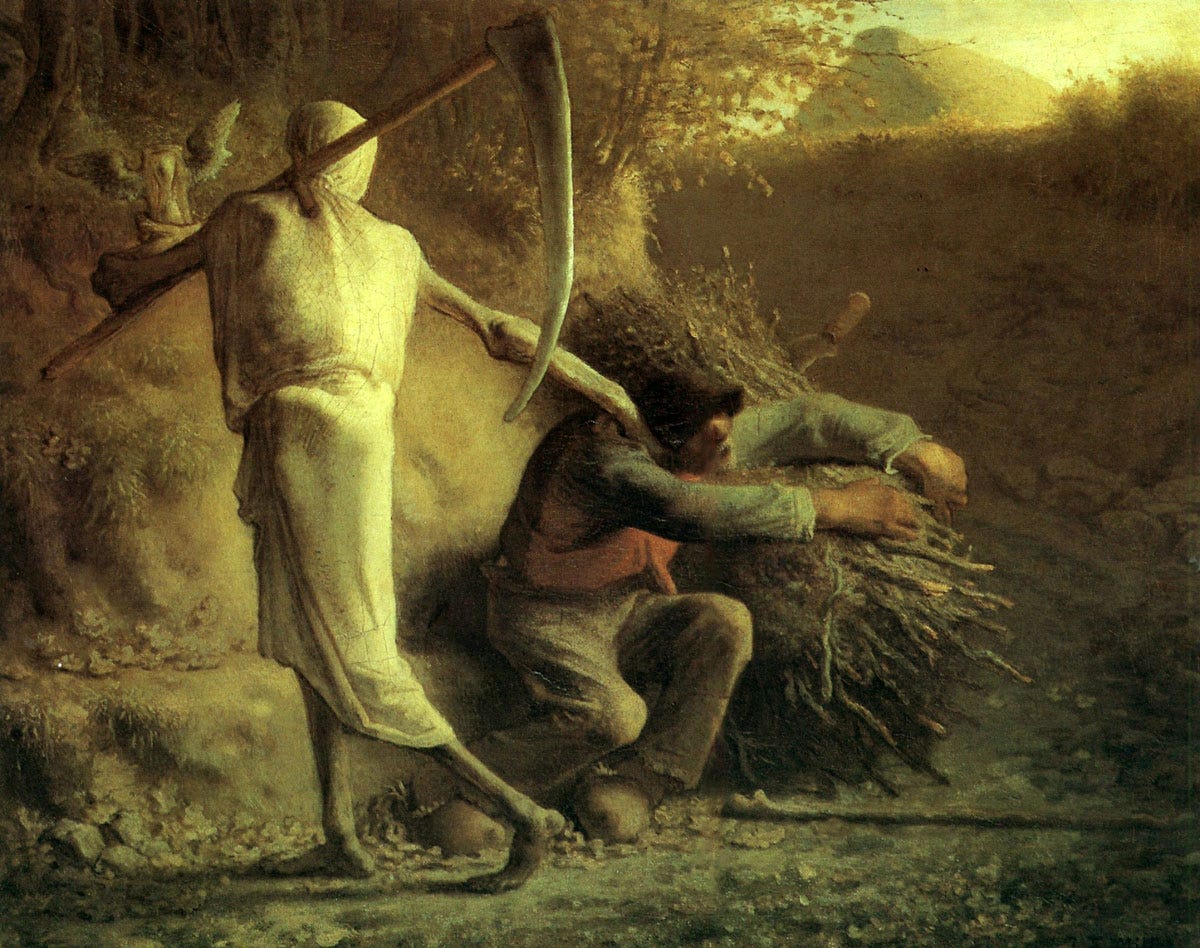The Happiest Thing I Know
Jean-François Millet on the artistic appeal of difficult, rural life
The painter Jean-François Millet (1814–1875), quoted in Alfred Sensier, La vie et l'oeuvre de J.-F. Millet (Paris: A. Quantin, 1881), p. 130 (my translation, apart from the couplet from La Fontaine, which I have lifted from Helena de Kay's version):
I admit, at the risk of sounding like a socialist, that the human side touches me most in art, and if I were able to do as I wished, or at least to try, I would not do anything that was not the result of an impression received from some aspect of nature, be it from landscapes or figures. It is never the joyous side that appears to me; I do not know where it is, and I have never seen it. The happiest thing I know is the calm and silence which one enjoys with so much delight in either the forests or the ploughed fields, no matter whether they are good for farming or not. You will grant that this is very dreamy, and a very sad dream, albeit an exquisite one.
You are seated beneath the trees feeling all the well-being and all the tranquillity that one is capable of enjoying; you see some poor figure laden with firewood emerge from a little pathway. This figure’s unexpected and striking appearance brings you back instantly to the sad human condition, weariness. It always gives you an impression similar to the one La Fontaine expresses in his fable of the woodcutter:
What pleasure has he had since the day of his birth? Who so poor as he in the whole wide earth?Sometimes in the fields, although the land is poorly suited to cultivation, you see figures hoeing and digging. Once in a while one of them stands up, “straightens his kidneys” as they say, and wipes his brow with the back of his hand. “In the sweat of thy face shalt thou eat bread.”
Is this the jolly, frolicking work that certain people want us to believe in? Nevertheless it is here that, for me, true humanity and great poetry are found.



It is nice that he recognizes not only the dignity but also the difficulty of peasant labor. Often one gets an idyllic portrayal of hard-working, salt-of-the-earth peasants that neglects the fact that they spent their lives doing extremely hard physical labor. This is more balanced.